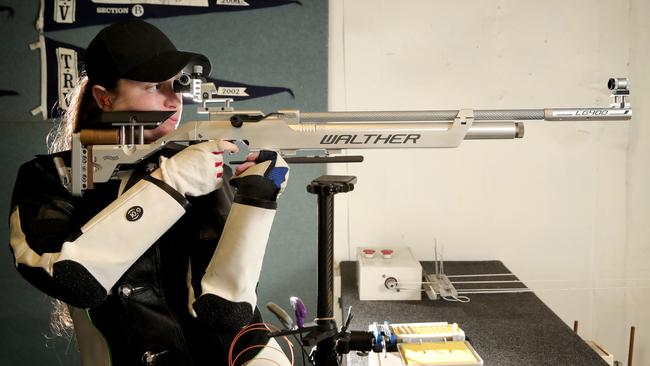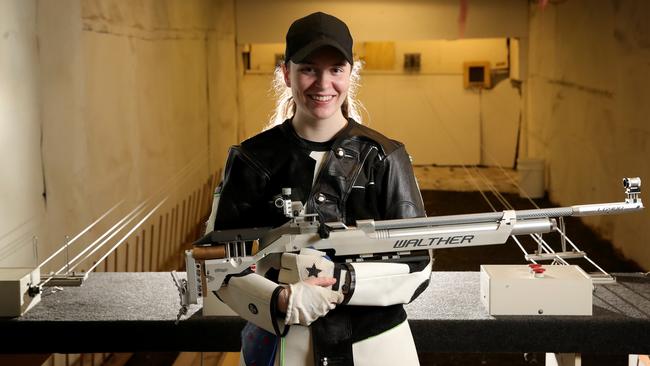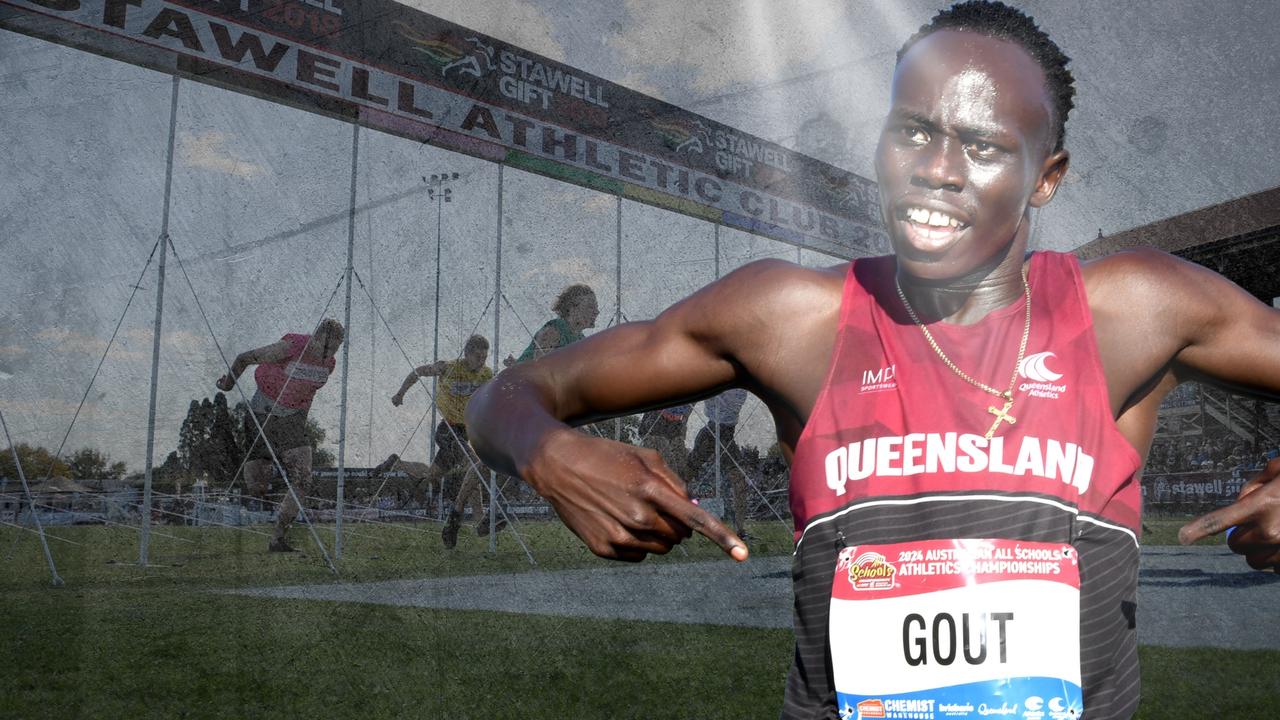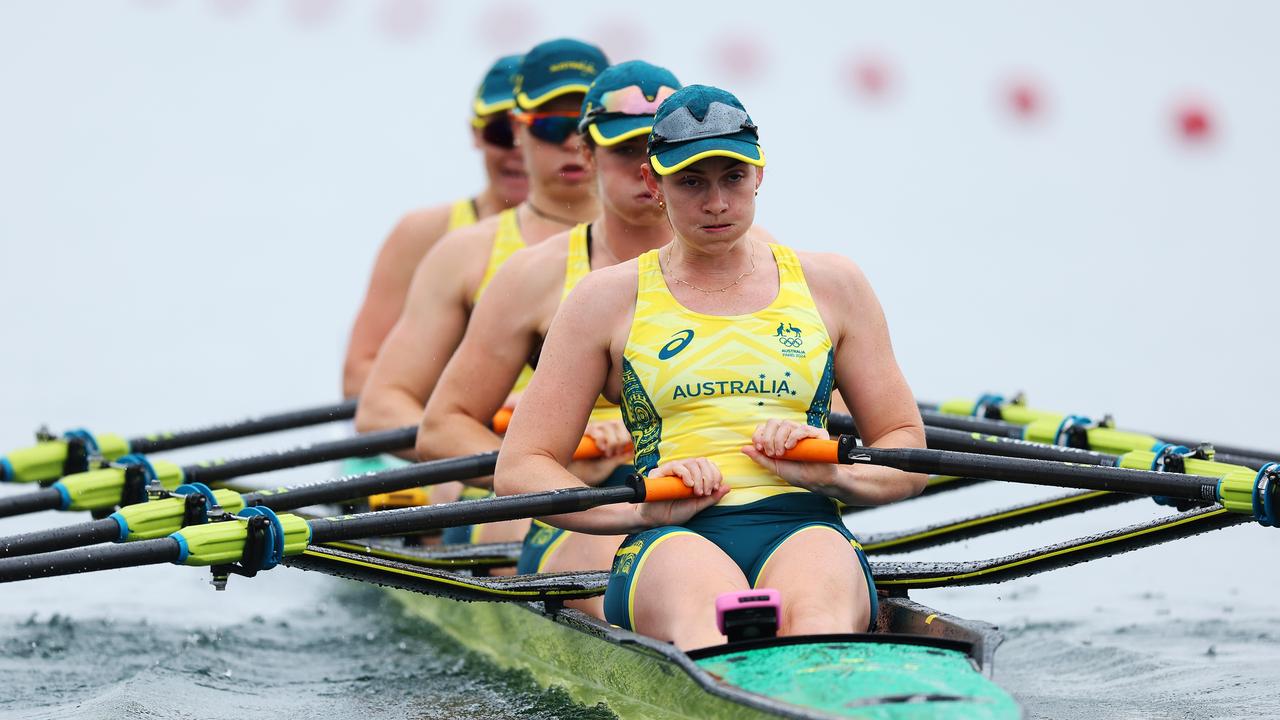Shooting pain puts Olympics in focus for Elise Collier
It’s eight years since Elise Collier fractured her skull. Eight years of continuous headaches, but she found shooting helps and now the Olympics beckon.

I’ve heard a thousand stories about the mental toughness of athletes but I’m not sure anything tops the one about the Olympic shooter whose powers of concentration and focus are more essential to her day-to-day survival than the intricate sporting pursuit that may elevate her to the podium at the Tokyo Games.
Elise Collier was training on a Thursday arvo with the Ormond Cricket Club in Melbourne when one of the X boys in her XI fractured her skull with an accidentally wild throw from point-blank range. She was 13 years of age.
This was back in the days before head knocks were treated with the utmost of care. Back in the days before Phillip Hughes received his unplayable one at the SCG and we saw how lethal a six-stitcher could be.
Collier was a tough young chick, and not yet aware of the seriousness of the damage to her brain, let alone the broken bone surrounding it — the medical advice was to sleep it off — and she played again on the weekend.
She was a state representative. A good ’un. On the Saturday morning, no problem. On the Saturday afternoon, no problem. On the Sunday, she took the new ball. Completed the first over. No problem. Grabbed her cap from the umpire. Went to field at … she didn’t get there. Problem.
She felt nauseous. She felt dizzy. Lost her eyesight. Fell to the ground. Her teammates told her to look at the sun. She could see nothing. Pitch? Black.
She was rushed to Monash Children’s Hospital, where three nights earlier they had underestimated her condition. Let’s cut to the chase — we’re going to run out of space and the editor is getting cranky. For every second of the subsequent eight years, Collier has lived in a cerebral prison. For every second of those last eight years, she has been gripped by a splitting headache.
“From that moment until this day,” she says. “My headaches are permanent. It never ends. They never go away. It’s impacted everything in my life. Complicated it. I struggled with schoolwork. Couldn’t concentrate. Couldn’t read a book properly. I couldn’t process the words because all I could think about was my headache. I couldn’t hold conversations. We tried so many things, we’d gone and seen so many doctors, then one day my dad said, ‘You know, when I was younger, I did shooting. I learned a lot of concentration techniques. A lot of life skills. How to focus’.
“He said to mum, ‘What do you think? Could this help?’ She said, ‘At this point, let’s try anything’. So I started shooting. There was only one reason. I thought it might help with dealing with my headaches.”

Collier is 21. I cannot imagine many things more debilitating and infuriating and potentially ruinous to a young woman than a headache that never dies. She’s put her heart and soul and might and all her attention into shooting at the Oakleigh Target Rifle Club and to her utter astonishment, just 2½ years after simply trying to find a more peaceful existence, she’s qualified for the Tokyo Olympics. “Never in my wildest dreams!” She laughs, and then I think she’s going to cry. “Never did I think that anything like this could possibly happen to me.”
Shooting helps her life. Her life helps her shooting. How to numb the incessant pain? By concentrating on something else. A Rubik’s Cube, a beautiful piece of music. Exercise. A 10mm bullseye.
“I have to ignore something that I have. Pain. How do I do that? By focusing, with everything I have, on something else,” she says. “But it’s always there. Every night, when I’m trying to go to sleep, I’m like, jeez, my head really hurts.”
The headache of a never-ending headache.
“There was a day, about a year and a half after it happened, when my body started shutting down,” she says. “One of my arms started shaking, 24/7. I had quite a severe tremor. One of my eyelids closed, and I started going blind in that eye. I was deaf in one ear. Couldn’t smell. Couldn’t taste. Lost my voice. I was having trouble walking. But I’ve been incredibly lucky. My family is strong. I mean, there’s been days when mum hasn’t been able to look at me without wanting to cry. My parents have always protected me, but all of a sudden they couldn’t protect me from my own body. It’s a blunt pain. Like someone is squeezing my brain. But what can you do, hey? I’m stubborn enough. All you can do is work out a way to get on with it.”
Collier’s Olympic 10m air rifle event is incomparable when it comes to the need for immaculate precision. The margin for error is half a millimetre, the diameter of the bullseye in the middle of a 45.5mm target.
“When I’m about to shoot, I’m definitely still aware of the headaches, but I’m so hyper-focused on what I’m doing that it doesn’t seem to be an issue,” she says. “The whole target is about the size of a 20c piece. You’re putting absolutely all of your concentration and mental energy into hitting the dead centre. Think of it like this. If you’ve broken your leg, you have pain, right? But when you get an adrenaline rush in competition, it takes your focus away from the pain. You know something’s wrong … but you’re more focused on something else for a moment. I know there’s pain but when I’m shooting I’ve found something better to think about for a second.”
Collier had a headache on Friday. She has a headache today. She is more than likely to have a headache tomorrow.
“I’ve got one now,” she says. “No medications work. Nothing does. I’m quite an accident-prone person. I’ve been put on morphine in hospital for other injuries, and the headache is still there. Right now? To be honest, it feels like someone is squishing my brain from every angle. It sort of feels like my brain is too big for my skull.”
Which makes me think her heart must be brave and committed and determined and courageous to get through this. She watched the Rio Games on her laptop in the school library; she could not have conceived of being an Olympian because then, she was yet to fire a single shot.
Sport doesn’t put her under pressure. Fleetingly, it takes it away.



